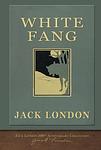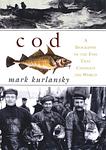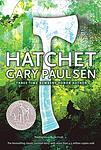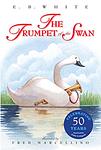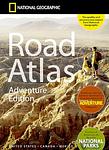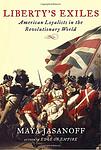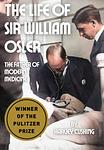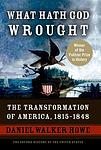The Greatest American "Canada" Books of All Time
Click to learn how this list is calculated.
This list represents a comprehensive and trusted collection of the greatest books. Developed through a specialized algorithm, it brings together 300 'best of' book lists to form a definitive guide to the world's most acclaimed books. For those interested in how these books are chosen, additional details can be found on the rankings page.
Genres
The "Canada" category for books would encompass literature that is set in, written by, or about Canada and its people. This category would include a wide range of genres, such as fiction, non-fiction, poetry, and memoirs, and would explore various themes related to Canadian culture, history, and identity. Books in this category would offer readers a unique perspective on Canada and its diverse communities, landscapes, and experiences.
Countries
Date Range
Reading Statistics
Click the button below to see how many of these books you've read!
Download
If you're interested in downloading this list as a CSV file for use in a spreadsheet application, you can easily do so by clicking the button below. Please note that to ensure a manageable file size and faster download, the CSV will include details for only the first 500 books.
Download-
1. The Call of the Wild by Jack London
This book tells the story of a domesticated dog named Buck who is stolen from his home in California and sold into service as a sled dog in Alaska. As he faces harsh conditions and brutal treatment, Buck must learn to adapt to the wild and harsh environment, ultimately reverting to his ancestral instincts in order to survive. The book explores themes of nature versus nurture, civilization versus wilderness, and the struggle for dominance.
-
2. The Shipping News by Annie Proulx
The novel follows the story of a depressed and overweight man who moves with his two daughters to his ancestral home in Newfoundland, Canada, after his unfaithful wife dies in a car accident. There, he begins to rebuild his life, working as a reporter for the local newspaper, The Shipping News, and learning about the harsh realities of the fishing industry. As he delves into his family's history, he begins to find a sense of belonging and a new love. The story explores themes of family, identity, and the power of place.
-
3. White Fang by Jack London
The novel tells the story of a wolf-dog hybrid named White Fang, who endures harsh conditions in the Yukon during the 19th-century Klondike Gold Rush. The narrative follows White Fang's journey from a life in the wild to domestication. He experiences cruelty and brutality from both nature and humans, but eventually finds kindness and compassion with a man who rescues him from a dog-fighting ring. The book explores themes of survival, nature versus nurture, and redemption.
-
4. The Plot Against America by Philip Roth
This novel presents an alternate history where aviator-hero and rabid isolationist Charles Lindbergh is elected President in 1940, leading the United States towards fascism and anti-Semitism. The story is narrated through the perspective of a working-class Jewish family in Newark, New Jersey, experiencing the political shift and its terrifying consequences. The narrative explores themes of prejudice, fear, patriotism, and family bonds under the shadow of a fascist regime.
-
5. Shadows on the Rock by Willa Cather
Set in the late 17th century, the novel explores the lives of French colonists in Quebec City. It focuses on the daily experiences of a French apothecary and his young daughter, illuminating their struggles and joys as they navigate the harsh realities of frontier life. The narrative delves into themes of faith, identity, and the human spirit's resilience, offering an intimate portrait of early colonial life in North America.
-
6. Cod: A Biography of the Fish that Changed the World by Mark Kurlansky
This book is a fascinating exploration of the historical, cultural, economic, and ecological impact of the codfish. It traces the role of this fish in shaping economies, sparking wars, and influencing culinary trends across centuries and continents. The book also delves into the devastating effects of overfishing and the current struggle to sustain cod populations. The narrative combines history, science, and gastronomy to present a comprehensive biography of this significant fish species.
-
7. Hatchet by Gary Paulsen
A 13-year-old boy survives a plane crash in the Canadian wilderness and is left to fend for himself with only a hatchet his mother gave him as a present. Over the course of several months, he learns to hunt, fish, and forage for food while also dealing with wild animals, harsh weather, and loneliness. Through a series of flashbacks, he also confronts painful memories from his past, and ultimately, he emerges stronger and more mature from his ordeal.
-
8. Great Heart by James West Davidson, John Rugge
"Great Heart" is a riveting historical account of the 1903 expedition across Labrador, one of the most inhospitable regions in North America. The book details the journey of four men and their struggle for survival against the harsh elements. The narrative is enriched with the explorers' own words, taken from their journals, giving readers an intimate look into their extraordinary adventure. The book is a testament to the human spirit and the will to survive, even in the face of insurmountable odds.
-
9. World War Z by Max Brooks
The book is an apocalyptic horror novel presented as a collection of individual accounts in the aftermath of a global pandemic that leads to a catastrophic zombie outbreak. Through interviews with survivors from various countries and walks of life, the narrative unfolds the social, political, cultural, and environmental implications of the zombie crisis, known as World War Z. The personal stories explore the widespread panic, the collapse and resurgence of governments, military strategies employed to combat the undead, and the human resilience in the face of a decimated world. The novel serves as a critique of societal responses to disasters and a commentary on the human condition.
-
10. Notes From The Century Before by Edward Hoagland
In "Notes From The Century Before," the author embarks on a vivid exploration of British Columbia's remote wilderness in the 1960s. Through a series of journal entries, he recounts his encounters with the rugged landscapes, diverse wildlife, and the eclectic mix of settlers, trappers, and indigenous peoples who inhabit this frontier. His observations are both introspective and expansive, offering a reflective and often lyrical meditation on nature, civilization, and the human experience at the edge of the modern world. The narrative serves as a time capsule of a bygone era, capturing the spirit of adventure and the complexities of cultural intersections in a land poised on the cusp of change.
-
11. The Trumpet Of The Swan by E. B. White
This children's novel tells the story of Louis, a trumpeter swan born without a voice, which makes him unable to communicate and feel out of place among his kind. Determined to overcome this challenge, Louis embarks on a remarkable journey that leads him to human interactions, learning to read and write, and eventually acquiring a trumpet to express his voice musically. Along the way, he falls in love, faces various obstacles, and seeks to repay a debt, showcasing themes of perseverance, the importance of finding one's own voice, and the power of love and friendship. Through his adventures, Louis not only finds his place in the world but also brings joy and music to those around him.
-
12. The Terror by Dan Simmons
"The Terror" is a historical fiction and horror novel that follows the ill-fated Franklin Expedition. The crew of two British Royal Navy ships are trapped in the Arctic ice, where they face not only the harsh environmental conditions but also a mysterious and brutal monster that stalks them in the endless night. The novel combines historical and survival themes with supernatural horror, creating a chilling and suspenseful atmosphere.
-
13. A Tale For The Time Being by Ruth Ozeki
In this introspective novel, a diary washes ashore on a remote Canadian island, bridging two disparate worlds. The journal, written by Nao, a troubled Japanese teenager, chronicles her life, her contemplation of suicide, and her relationship with her great-grandmother, a Zen Buddhist nun. The diary is discovered by a novelist, who becomes engrossed by Nao's story and is compelled to unravel the mysteries of Nao's fate and her own connection to the young girl. As the novelist reads, the boundaries between writer and reader, past and present, fiction and reality blur, creating a meditation on time, loss, and the intricate threads that connect human lives across the globe.
-
14. Canada by Richard Ford
The novel follows the story of fifteen-year-old Dell Parsons, whose life is irrevocably changed after his parents commit a bank robbery in 1960s Montana. After the heist goes awry, Dell is left to fend for himself, and he crosses the border into Saskatchewan, Canada. There, he encounters a new world of isolation and hardship, and a series of characters who will shape his understanding of life. As Dell navigates his new reality, he reflects on the events that led to his family's downfall and his own coming of age in a foreign land. The narrative is a profound exploration of destiny, self-reliance, and the indelible impact of one's family and past.
-
15. Wonderful Life: The Burgess Shale And The Nature Of History by Stephen Jay Gould
"Wonderful Life: The Burgess Shale And The Nature Of History" explores the fascinating Burgess Shale fossil site in Canada and its profound impact on our understanding of evolution. Stephen Jay Gould delves into the diverse and bizarre creatures that once inhabited this ancient ecosystem, highlighting their significance in challenging traditional views of the evolutionary process. Through vivid storytelling and scientific analysis, Gould presents a thought-provoking argument that the history of life is contingent and unpredictable, emphasizing the importance of contingency in shaping the course of evolution.
-
16. The Oregon Trail by Francis Parkman
"The Oregon Trail" is a historical account of a two-and-a-half month summer tour in 1846 of the U.S. states of Nebraska, Kansas, Colorado, and Wyoming. The book captures the experiences of the author and his companion as they journey from St. Louis to the Rocky Mountains and back. The narrative is rich with descriptions of the landscapes, wildlife, and people they encounter, including several Native American tribes. The book provides a vivid depiction of the West before industrialization and settlement.
-
17. A Wilderness Station by Alice Munro
"A Wilderness Station" is a collection of short stories that delves into the complexities of human relationships and the subtle intricacies of life in rural Canada, spanning from the 19th century to contemporary times. The stories, rich in detail and psychological depth, explore themes of memory, misunderstanding, and the often ambiguous nature of truth. Through a series of letters and historical documents, one of the standout stories traces the turbulent life of a young woman who marries a pioneer and moves to a remote Canadian settlement, where her subsequent mysterious actions lead to dramatic consequences. The narrative masterfully weaves together different perspectives, revealing the profound impact of the past on the present.
-
18. Liberty's Exiles: American Loyalists in the Revolutionary World by Maya Jasanoff
The book provides an in-depth exploration of the experiences of American Loyalists who were forced into exile following the American Revolution. It details their struggles and hardships as they sought to rebuild their lives in far-flung corners of the British Empire, including Canada, the Caribbean, Sierra Leone, and India. The book also examines the broader impact of this mass migration on the shaping of the British Empire and the early United States.
-
19. The Life of Sir William Osler by Harvey Cushing
This biography explores the life and career of Sir William Osler, a Canadian physician and one of the four founding professors of Johns Hopkins Hospital. Detailing his contributions to the medical field, the book highlights Osler's innovative teaching methods, his advocacy for a strong doctor-patient relationship, and his belief in lifelong learning for medical professionals. The biography also delves into Osler's personal life, his upbringing, education, and the influence he had on modern medicine.
-
20. What Hath God Wrought by Daniel Walker Howe
This book provides a comprehensive historical account of the United States from 1815 to 1848, a transformative period marked by the significant political, economic, and technological changes that shaped the country's future. The author explores key events such as the War of 1812, the rise of industrialization, the expansion of democracy, and the Mexican-American War. The narrative also delves into the role of religion, the evolution of communications with the invention of the telegraph, and the emergence of a distinct American identity.
Reading Statistics
Click the button below to see how many of these books you've read!
Download
If you're interested in downloading this list as a CSV file for use in a spreadsheet application, you can easily do so by clicking the button below. Please note that to ensure a manageable file size and faster download, the CSV will include details for only the first 500 books.
Download

